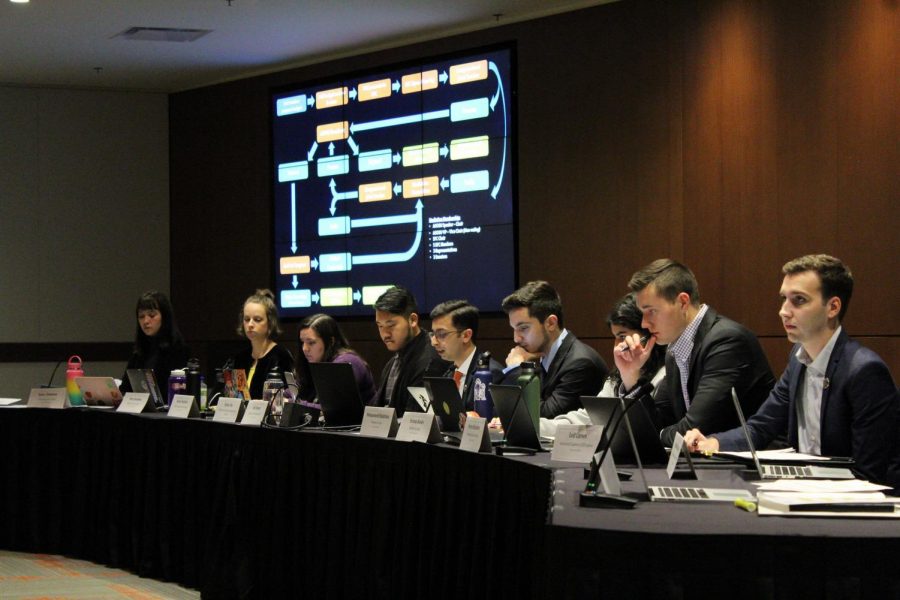Student Fee Committee holds open hearing
December 3, 2019
Correction: This story incorrectly named the Asian Pacific American Student Union. This error has been resolved.
The Student Fee Committee held an open hearing in the Memorial Union Horizon Room on Dec 2. They reviewed base budgets (current service level) and decision packages proposed by student fee-funded units. Discussion occurred amongst committee members, with public comments welcome and addressed.
The Student Fee Committee reports to the Associated Students of Oregon State University president, and is an independent committee of ASOSU’s executive branch. At the open hearing, 12 voting members were present on the committee, along with Safi Ahmad, the committee’s 13th member and chair. In the case of a tie in votes, Ahmad would step in and vote, thus breaking the tie.
The discussion was structured to review each unit’s budget individually. First, the unit would present their budget to the committee. The committee would then review it, allow five minute for public comment–which could be extended upon approval of the committee–and then proceed to a committee discussion and vote.
Eleven units funded by student fees were discussed at the open hearing: ASOSU, the Family Resource Center, Student Experiences and Engagement, Athletics, the Human Services Resource Center, the Memorial Union, Performing Arts, Recreational Sports, the Contingency Fee, Bad Debt and the Facility Improvement Fee.
Ahmad lead the committee in setting the student fees, and afterwards, recommending them to the ASOSU congress. He said the committee had four goals they kept in mind when voting.
“As a committee, we came up with four principles: meeting basic needs, prioritizing wellness, increasing access and embodying integrity,” Ahmad said. “We used these principles to support our decision-making.”
The first unit to present was ASOSU. Trenton Joiner, director of Diversity Programs in ASOSU, prioritized both equity and representation in his budget review. He said he wanted to ensure student compensation at ASOSU and create more equitable opportunities for students to get involved. He also discussed the idea of compensating ASOSU Congress members.
Second-year student and chemical engineering major, Brendan Lefranc, spoke during the public comment session, stressing the importance of the compensation of Congress members.
“The kind of diverse representation we want ASOSU to have won’t be possible if the only people who can join are those with the luxury of not needing to spend that time working,” Lefranc said.
The vote was passed 9-0-2 for ASOSU’s decision package one—which funded student compensation for ASOSU Congress as well as student seats on the Faculty Senate. The fee will be an additional 72 cents a term for ASOSU.
Another unit that presented their budget was Student Experiences and Engagement. SEE asked for a 3% increase in budget so they can continue to let programs and services run smoothly.
During the public comment session, fifth-year student and biology and digital communication arts double major, Angel Le, spoke on why the Student Organization Resources for Community Engagement was important to her. Le is a member of the Asian Pacific American Student Union. She said SORCE has really supported and helped with APASU events.
“SORCE has helped many students find a place where they belong and has convinced them to stay on campus,” Le said.
Other units who presented their budgets included HSRC, who have a small budget relative to other student fee funded units; Athletics, who asked for a 3% current service level, but they were willing to take their decision package off the table by acknowledging other needs on campus; FRC, who wanted increased support for child care; MU, who due to increasing facility costs, wanted money to fund more projects for a longer period of time; and Recreational Sports, who wanted to keep their current service level at 6.19%.











































































































